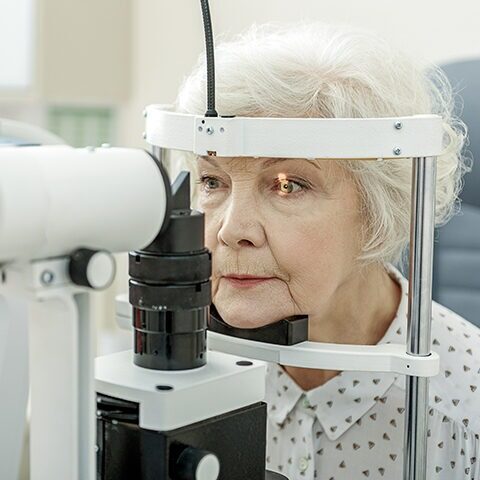Glaucoma Treatment
Glaucoma is treated by lowering the pressure in the eye. The most common treatment is eye drops that work by decreasing the pressure on the nerve and assisting the flow of fluid from the eye.
When diagnosed early, eye pressure, also referred to as intraocular pressure, can be controlled and glaucoma damage prevented.
An alternative treatment is the selective laser trabeculoplasty (SLT) laser eye procedure which can be carried out at our clinic by an ophthalmologist.
On this page, we explain what glaucoma is, the symptoms of glaucoma, how it's treated and some frequently asked questions.


What causes glaucoma?
Glaucoma occurs when a build-up of fluid in the eye creates pressure, causing damage to the optic nerve. Because this condition has few symptoms, patients often don’t realise there’s a problem with the eye until the damage has been done. However, when it’s diagnosed early, glaucoma is highly treatable.
How is glaucoma diagnosed?
Glaucoma is one of the leading causes of blindness in Australia, affecting around three in 100 people over the age of 35. After this age it is important to have your eyes checked by an ophthalmologist every 2-3 years as the risk of glaucoma is increased. Early diagnosis can prevent blindness from glaucoma.
Your ophthalmologist can diagnose glaucoma during a routine eye examination using an ophthalmoscope to view the back of the eye and through specialist scans. We will also test whether there are blind spots or whether the fields of vision are shrinking.
Glaucoma treatment options
Glaucoma is usually treated with eye drops that work by decreasing the pressure on the nerve and assisting the flow of the fluid from the eye. When diagnosed early eye pressure can be controlled and glaucoma damage prevented. An alternative treatment is the SLT laser eye procedure which can be done at our clinics.
Eye checks with an ophthalmologist every 2-3 years are critical. Early diagnosis can prevent blindness from glaucoma.
Eye drops are the most common treatment. These can help to decrease pressure on the affected nerve.
SLT laser procedure uses short pulses of low-energy light to lower eye pressure by improving drainage of fluid in the eye.
When should I book an eye examination?
You should book an appointment with an ophthalmologist if you have any of the following: